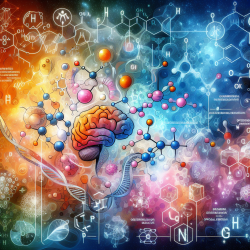The Role of Glutathione in Autism Spectrum Disorder: A Game Changer?
Autism Spectrum Disorder (ASD) is a complex neurodevelopmental condition characterized by challenges in social communication and interaction, alongside repetitive behaviors. Despite ongoing research, the precise causes of ASD remain elusive. However, recent studies have begun to explore the potential role of oxidative stress in ASD, bringing attention to the antioxidant glutathione as a possible therapeutic agent.
Understanding Oxidative Stress in ASD
Oxidative stress occurs when there is an imbalance between free radicals and antioxidants in the body. In the context of ASD, oxidative stress is thought to contribute to the disorder's pathology. Glutathione, a powerful antioxidant, is central to the body's defense against oxidative stress. It scavenges free radicals, detoxifies harmful substances, and supports immune function.
Research Insights: Glutathione Supplementation
A recent open-label pilot study investigated the effects of oral glutathione supplementation in children with ASD. The study aimed to assess the tolerability and effectiveness of this antioxidant therapy. Results indicated that while glutathione was generally well-tolerated, its impact on oxidative markers and clinical symptoms varied among participants.
Key Findings and Implications
- Some children showed improved oxidative markers, such as increased levels of glutathione peroxidase and superoxide dismutase.
- Behavioral improvements were noted in certain domains, particularly hyperactivity and irritability, although these changes were not statistically significant.
- One participant experienced increased irritability, highlighting the need for careful monitoring and individualized treatment plans.
Challenges and Considerations
While the study provides promising insights, it also underscores the complexity of ASD and the multifaceted nature of its treatment. Factors such as genetic predispositions, environmental influences, and the gut-brain axis play significant roles in ASD, suggesting that glutathione supplementation may be more effective when combined with other therapeutic strategies.
Moving Forward: The Need for Further Research
The pilot study's findings highlight the need for larger, controlled trials to better understand the potential benefits and limitations of glutathione in ASD treatment. Practitioners are encouraged to stay informed about emerging research and consider a holistic approach to ASD management that includes nutritional, behavioral, and pharmacological interventions.
To read the original research paper, please follow this link: An Open-Label Case Series of Glutathione Use for Symptomatic Management in Children with Autism Spectrum Disorder.









